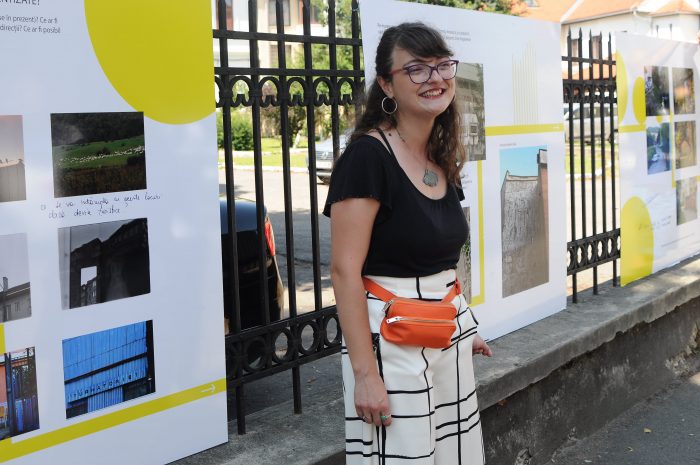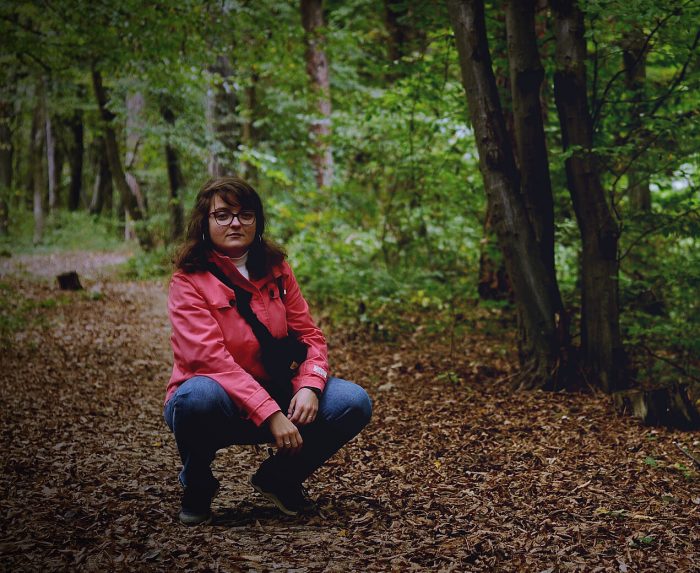Photo work: The political theatre season – 2021-2022
Posted by Raluca Turcanasu on / 0 Comments
To stage corona. To dramatize shame. To enact maternity. To (re)produce hospitality work. To listen to history. To sing delivery. To have solidarity in solitude.
What does the labour of a commercial worker or a delivery wo/man mean in Corona times? How can one step in the shoes of those who just serves one’s needs? In the shoes of a train passenger? In the skin of an exhausted mother? Or that of a supermarket manager? Or of a parent of a non-neurotypical child? Or, perhaps, of an independent cultural worker?
With humor and a lot of empathy seems to be the answer, as inferred from the vast repertoire of plays of the Political Theatre Season. I find a Socratic dimension in David Schwartz’s plays: this capacity of treating situations with both sobriety and humor, as the only and most secure way to bring spectators closer to tragically-absurd situations, that are, otherwise, hard to swallow. At a dialectic level, it is probably the most efficient discourse, considering that it is human nature to refuse to accept our own limitations when they’re directly pointed at, highlighted, ridiculed. Yet, there is also the possibility to replace humor with aesthetics, in a performative sense, in Irina Gadiuta’s and Monica Marinescu’s plays.
“Artists Need to Create on the Same Scale That Society Has the Capacity to Destroy” wrote Sherrie Rabinowitz in a neon work in 1984. At a first glance, the text sends to a huge productive pressure upon artists, yet, in depth, it leads to the metabolic processes of construction (anabolism) and deconstruction (catabolism). And this understanding seems closer to what the Political Theatre Season stands for: on one hand, an exoskeletal direction: the accessibility of a rich and frequent content, as an alternative to the mainstream one; on the other, an endoskeletal one: the manner in which plays are scenographically constructed & deconstructed, in an undisguised & unpretentious aesthetic minimalism.
What is it all about?
Heated Heads (Capete Înfierbântate)
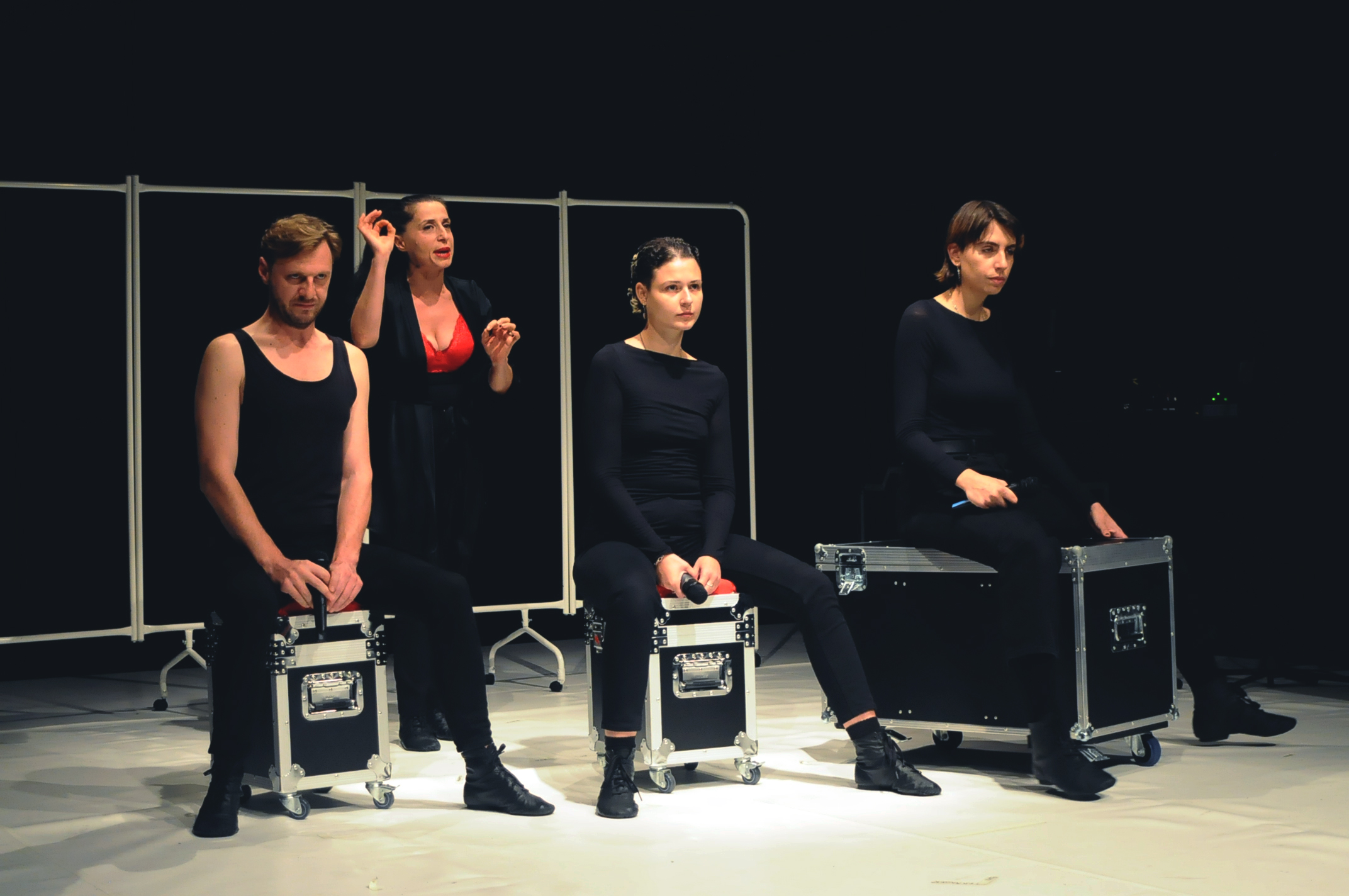
Text: Mihaela Michailov, David Schwartz
With: Alexandru Potocean, Oana Rusu, Teodora Retegan, Maria Sgarcitu
Direction: David Schwartz
« The health of the many versus gains for the few. Social medicine versus profit with any risk. Precarious workers that fight among themselves and TV stars that get along perfectly. And some haunting ghosts, revengeful but helpless”
explained the director, David Schwartz, in a nutshell.
The director observed 10 years ago the heat-up in 1990 and now, with the transition to this new regime of normality, came back to investigate the insertion of the private into the public, with an accent to the current sanitary crises provoked by SARS-CoV-2. The show looks at the triggers of the vulnerability of the medical system, the dismantling of public services, the effects of the deconstruction of the social state and the risks of reducing expenses in health and marching towards privatization.
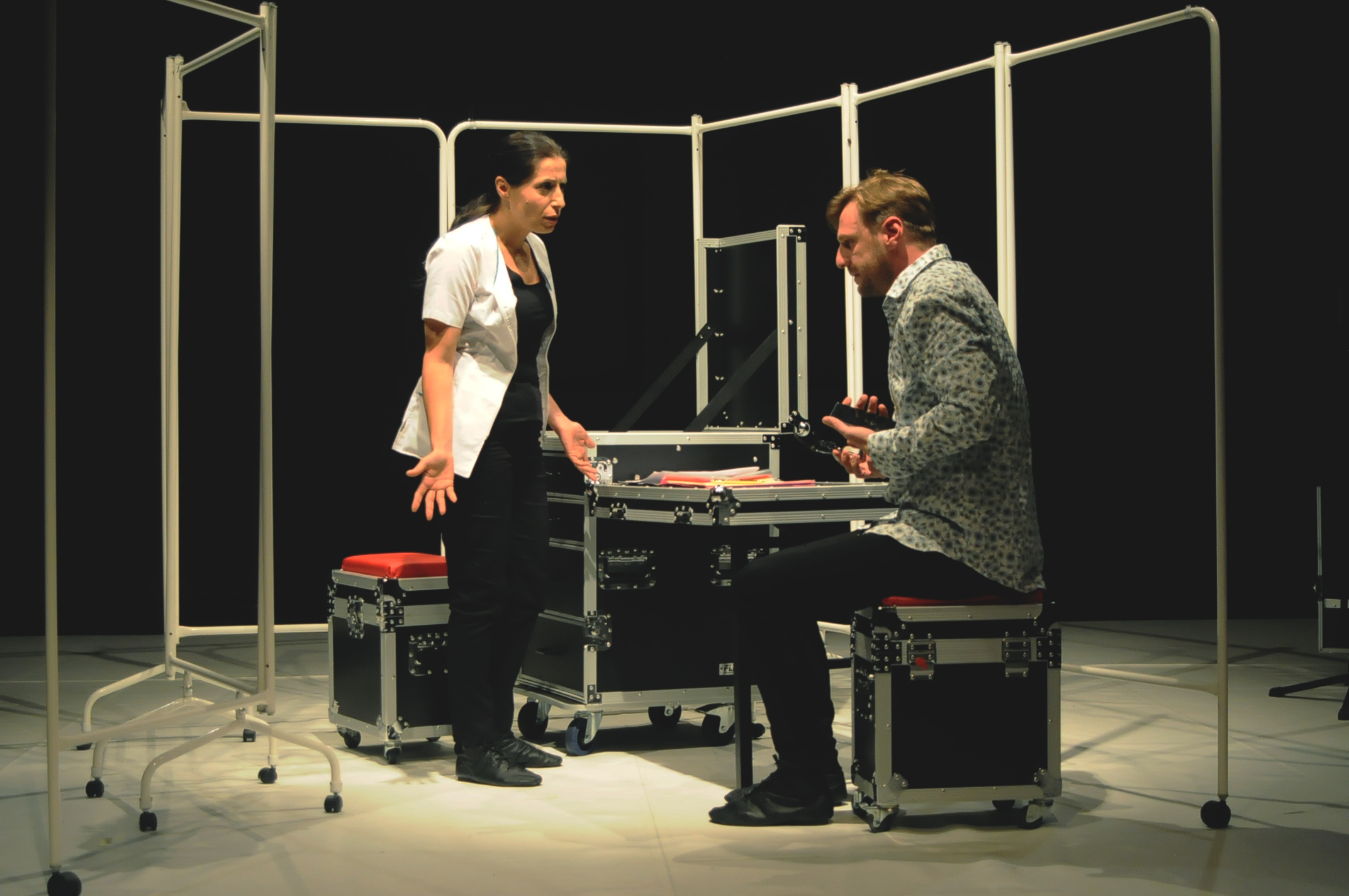
The play is constructed as a series of vignettes fluently tied together with musical intermezzos – in David Schwartz’s style. We meet a doctor who becomes persona non-grata for his landlord and neighbors, while, at the same time, being discursively pumped into a hero; a Corona-skeptical entrepreneur who’s only focusing on the harmful effects upon businesses and the economy; a dialysis patient who detachedly shares the lack of preventive measures against SARS-CoV-2 in the case of Diaverum, while the mind-numbing jingle of the clinic rumbles in the background; a man coming to the hospital to see his deceased mother for the last time, bribing the nurse to allow him to go next to her body, while keeping his mask underneath the chin; a TV show in which 2 business analysts discuss the opportunities of the period.
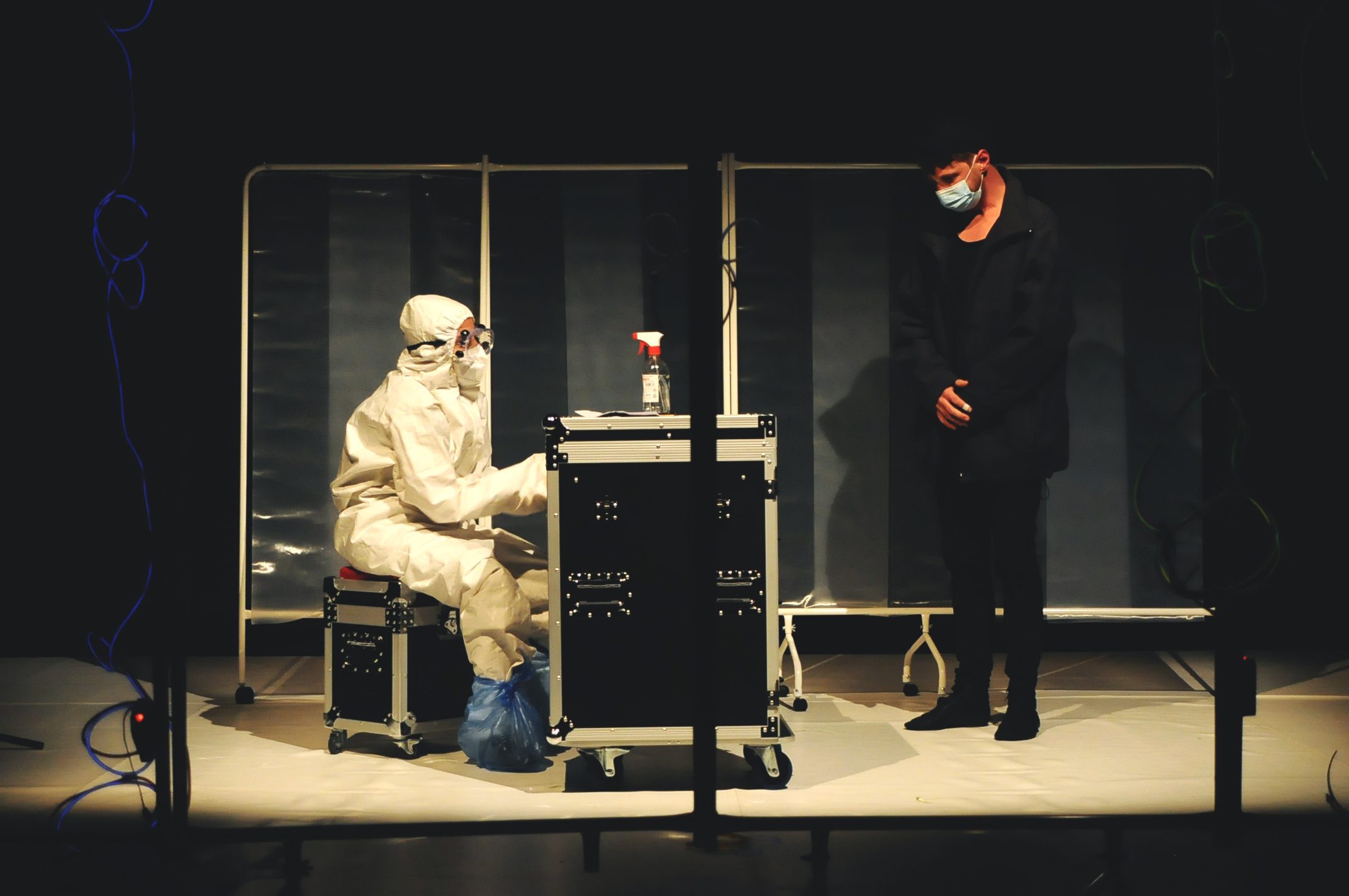
Heated Heads 2020 (Capete Înfierbântate) is a play built around the painful consequences of those public policies that priviledge profit and the logic of efficiency at any price, undermining the public interest and social medicine.
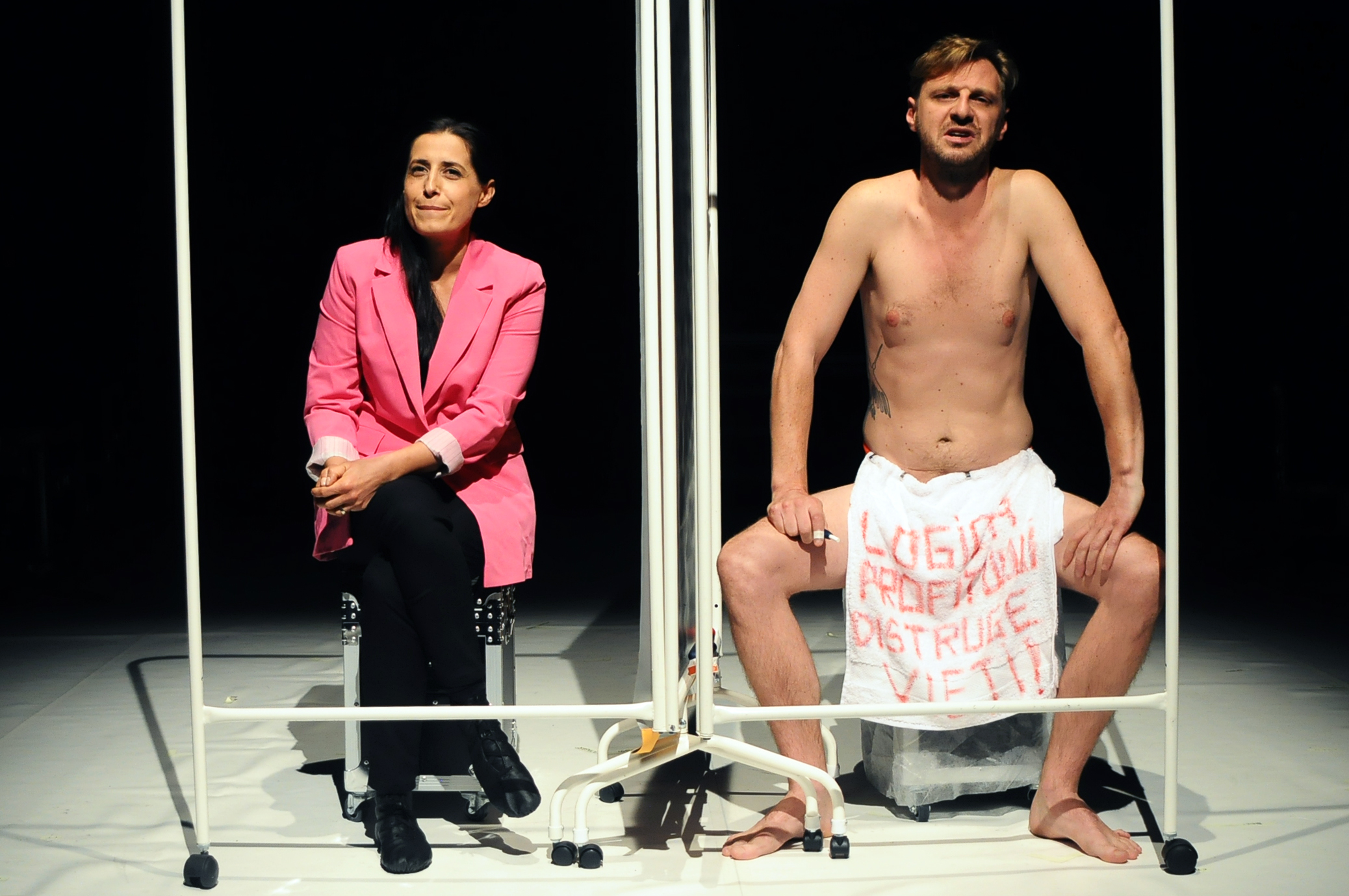
Universal Worker

With: Alice Monica Marinescu, Katia Pascariu, Alexandru Potocean, Andrei Șerban; scene play: Irina Gâdiuță; music & lyrics: Maria Sgârcitu; coregraphy: Carmen Coțofană; Visual identity: Cătălin Rulea; Directed by: David Schwartz.
How many different activities can one do on a job?
How does it feel to run around from the cash register to the deposit, from counting bills to carrying wooden pallets, from changing prices on shelves to washing the floor?
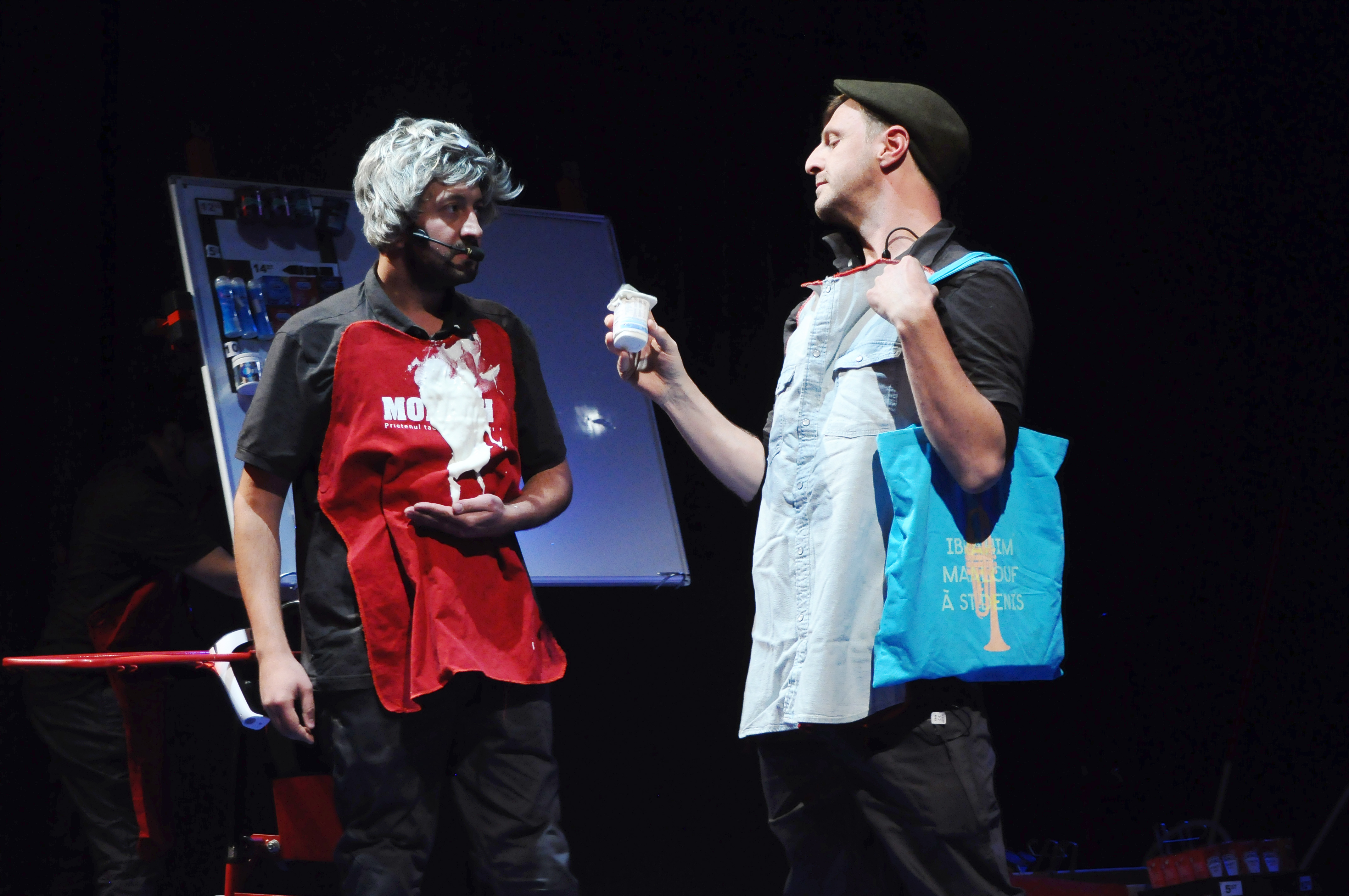
How does one make it at the end of the day, between managerial pressures and clients’ insults?

What can you do when, despite a recent pay increase, you can’t even afford to pay all your loans?
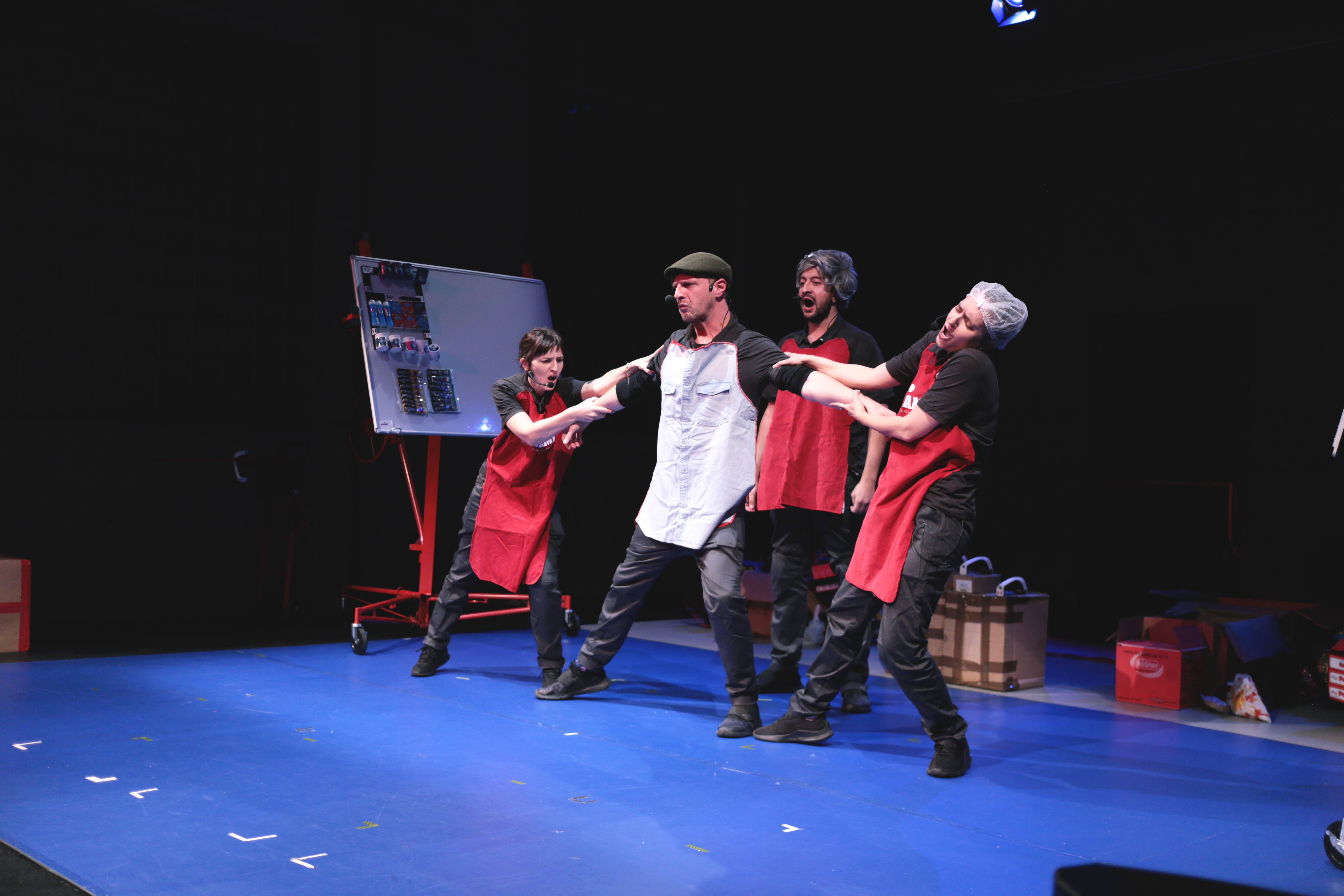
How should you react when the company sabotages the workers’ union?
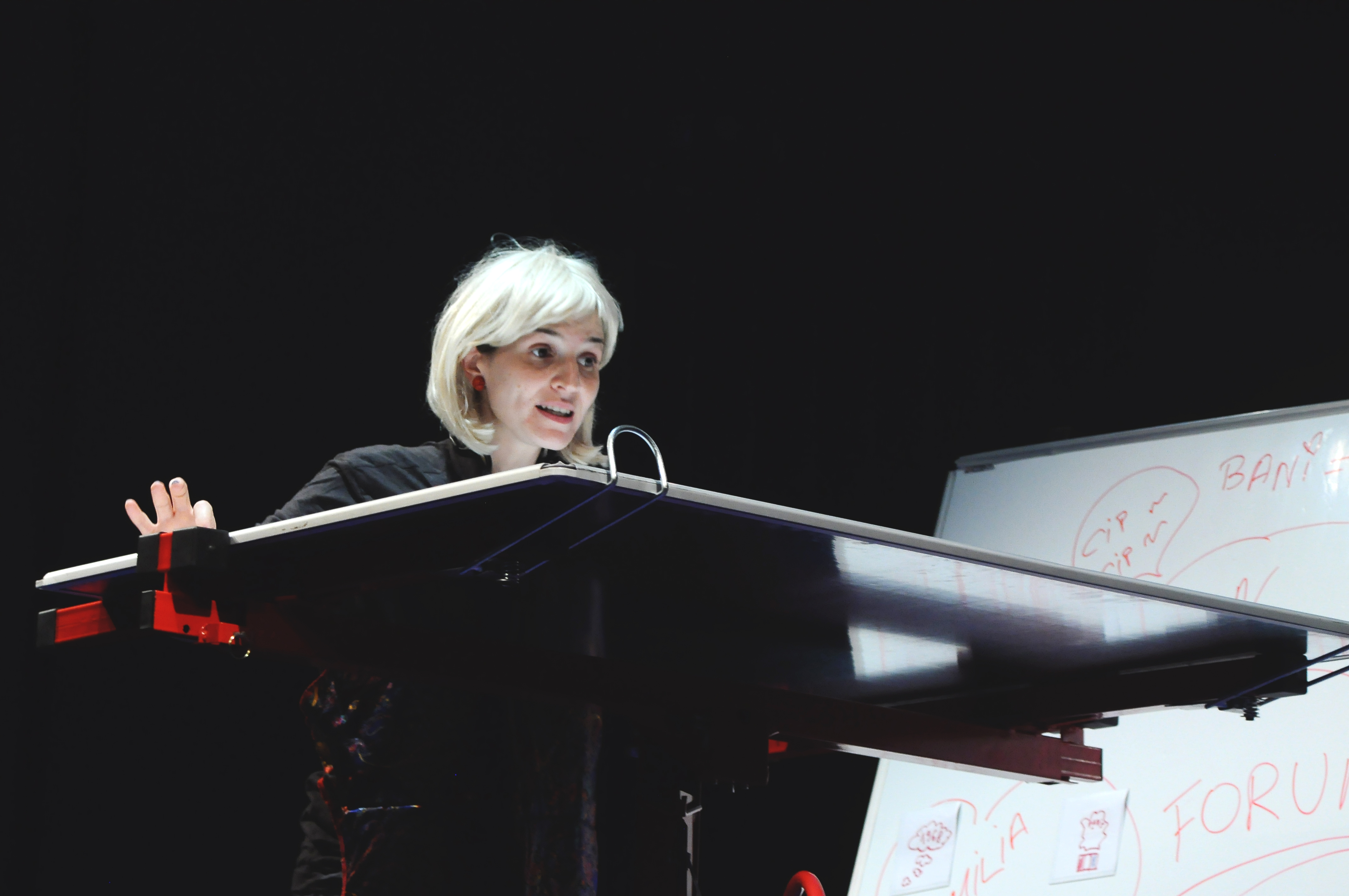
How can you protect your rights and negotiate better working conditions?

Universal Worker tells the stories of the precarious retail work, personal histories and work relations of 4 workers from “Mon Ami”, a fictional supermarket in Bucharest.
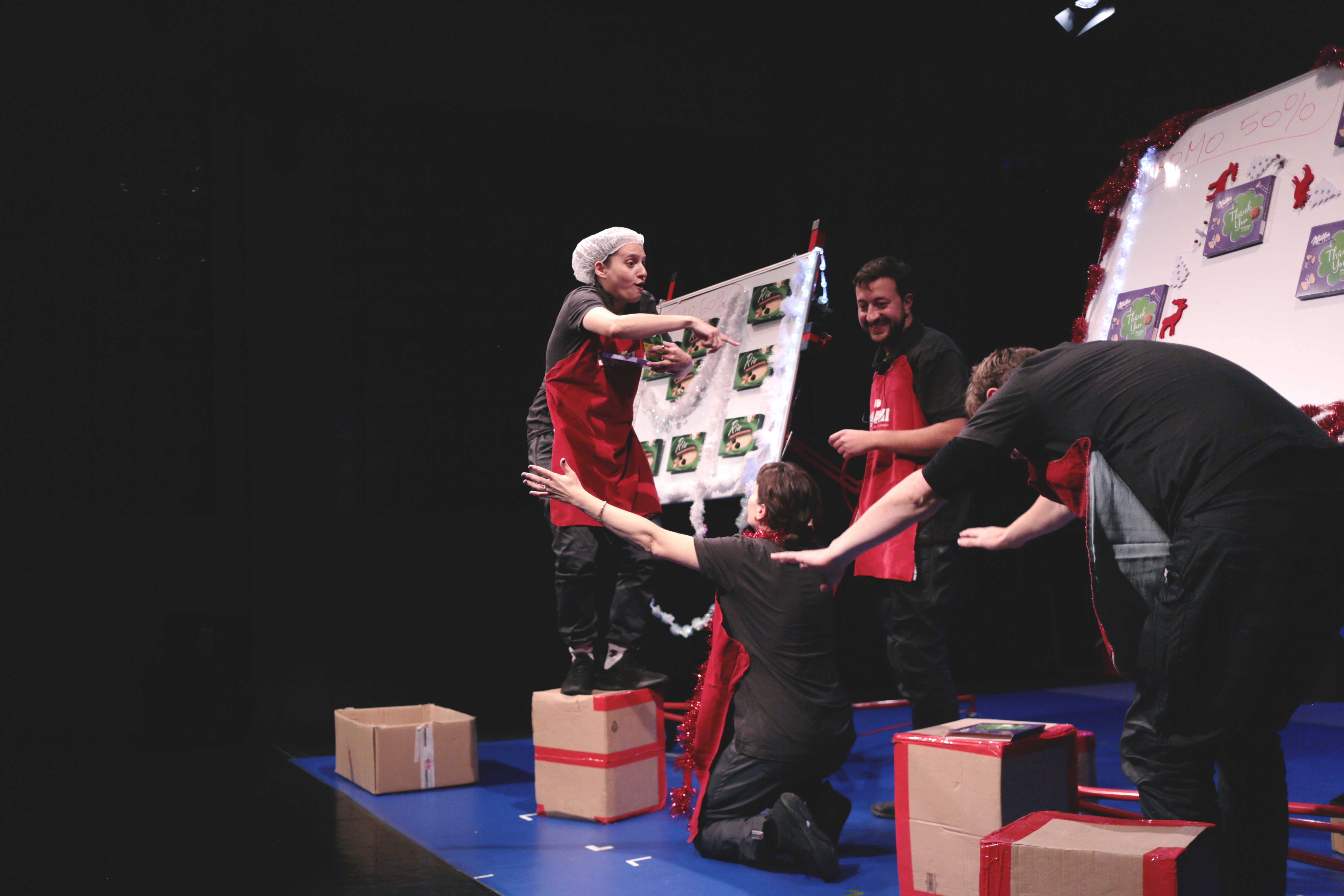
In Romania, over 800.000 people work in retail – the largest employee group in the country. Among those, approximately 83.000 work in multinational companies. Develooped together with the Retail Union Federation and based upon an extensive research (Veronica Lazăr, Alice Monica Marinescu, Rodica Novac, Katia Pascariu, Alexandru Potocean, David Schwartz, Andrei Șerban, Andra Tarara) the play presents, within a fictionalised frame, the problems, pressures and challanges of the employees and retail syndicates, in the local context.
Bucharest, Deliverer
Built upon a similar structure, but this time with Masca Theatre, Bucharest, Deliverer builds further on the discourse aimed to increase awareness on the precarious lives of those who serve our needs, and especially on how their jobs were affected by the pandemic.
What triggers one to become a Glovo delivery person?
How can one carry on on an intensive work day, dealing with tens of people and maintaining a fake smile, while the financial pressures and long hours erode you to desperation? And how can this feeling, this reality be dramatised theatrically, so that spectators do not leave even more emotionally charged than before? To allow them to become more aware of the situation but to also laugh, be it through music, dance, performance or through theatrical means, such as situational comic or hyberbolisation of daily situations or traits.
What motivates a delivery person? Which are the working conditions, the earnings, the dreams and aspirations of these “new workers”, who are “their own bosses” and “partners” of the delivery services? Schwartz flags the lack of awareness regarding this trade: delivery people do not have a syndicate to represent them, they cannot afford the luxury of contradicting the rules of the companies that “employ” them, and, even within the Romanian Work Legislation, they have a vague status.
Yet, we often forget that behind the products we order there is a HUMAN BEING.
MATERNAL

Concept & text: Alice Monica Marinescu; With Oana Rusu şi Alice Monica Marinescu; scenic move: Carmen Coțofană; scenography: Irina Gâdiuță; music & lyrics: Maria Sgârcitu şi Teodora Retegan.
In a sort of black cube, a metaphoric space of the confinement in which the drama and joy of maternity co-exist, Alice Monica Marinescu brings to the eyes of the viewers what cannot be seen behind the fake positivity discourse (the same as with delivery people): the loneliness and the pervasive advice from everyone, the post-birth body disphoria, the costs, the family – as both a safe and dramatic place.
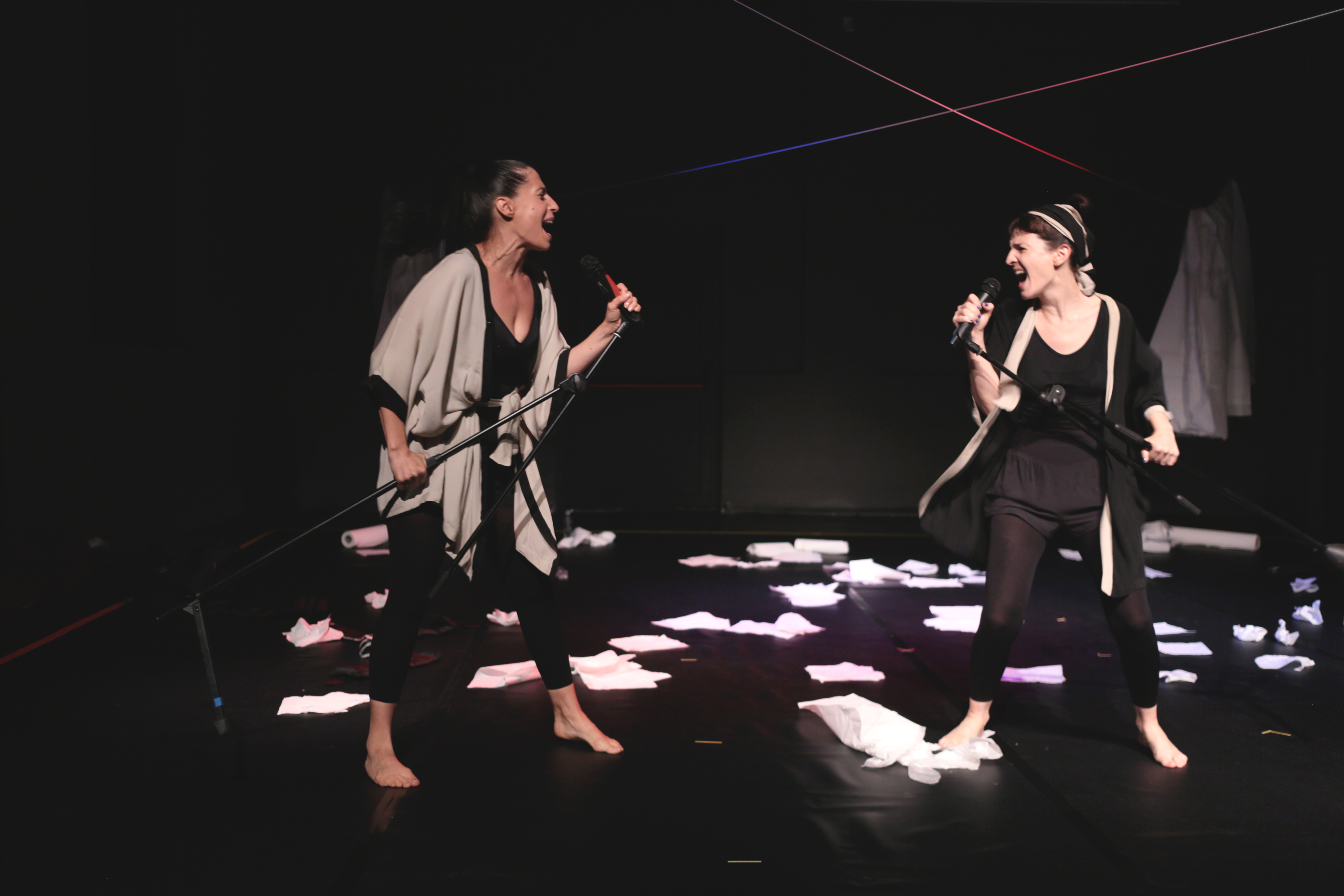
Matern is a play that explores with performative means the transformations of the bodies and psyches of women becoming mothers. The pregnancy, the delivery and breast feeding are fundamental stages of maternity that imply radical transformations, risks and important challenges for the feminine body and mind.
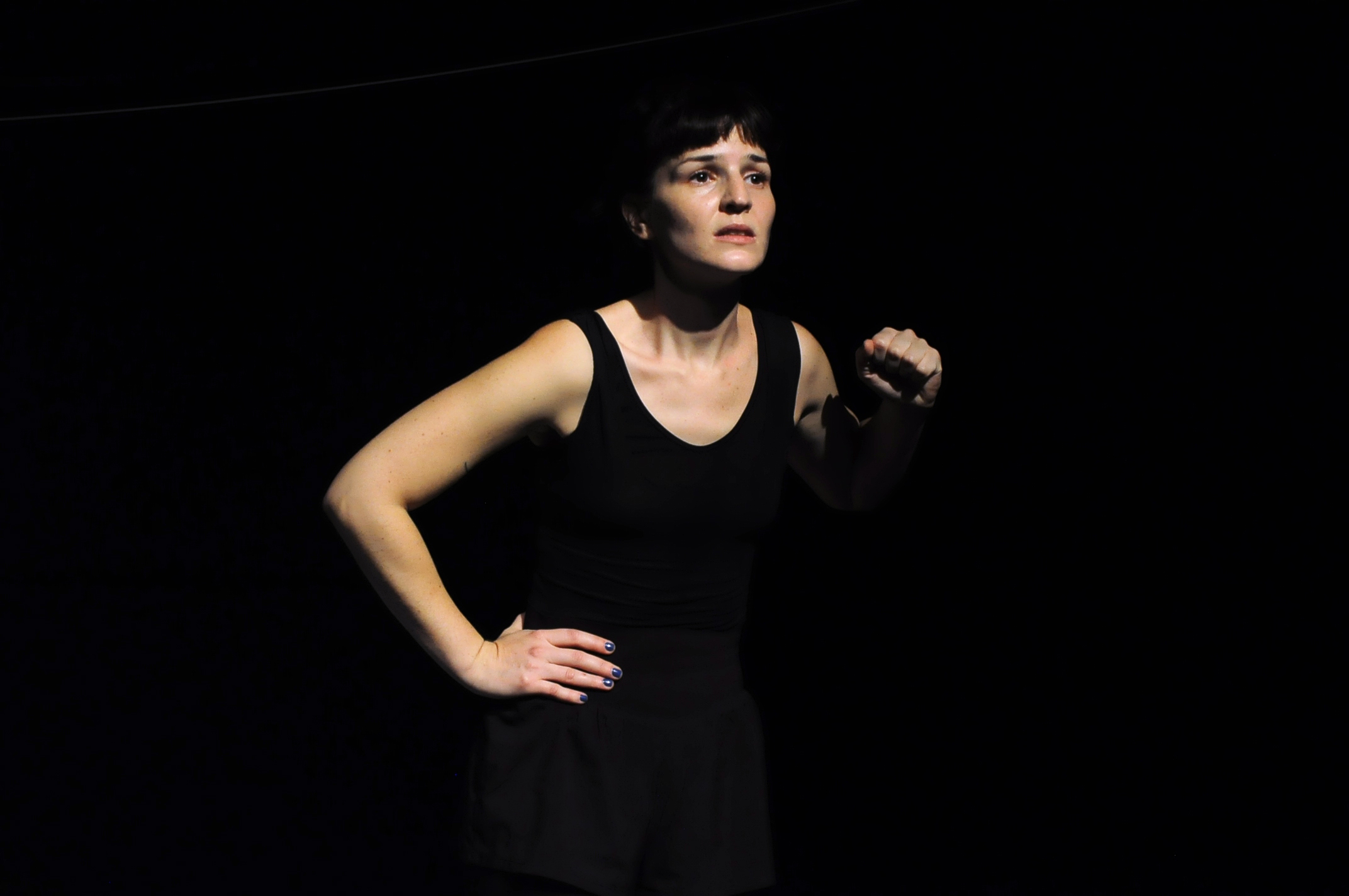
Maternity is generally considered a desirable stage in a woman’s life, which leaves the difficult, less pleasant aspects of it invisible, tabu – which, in turn, can leave a negative impact upon the image of the self and upon the emotional wellbeing of women. The play is centered upon the conflict between the idealisation of the motherly condition and the anxieties, pressures and material difficulties with which a fair majority of mothers have to deal with.
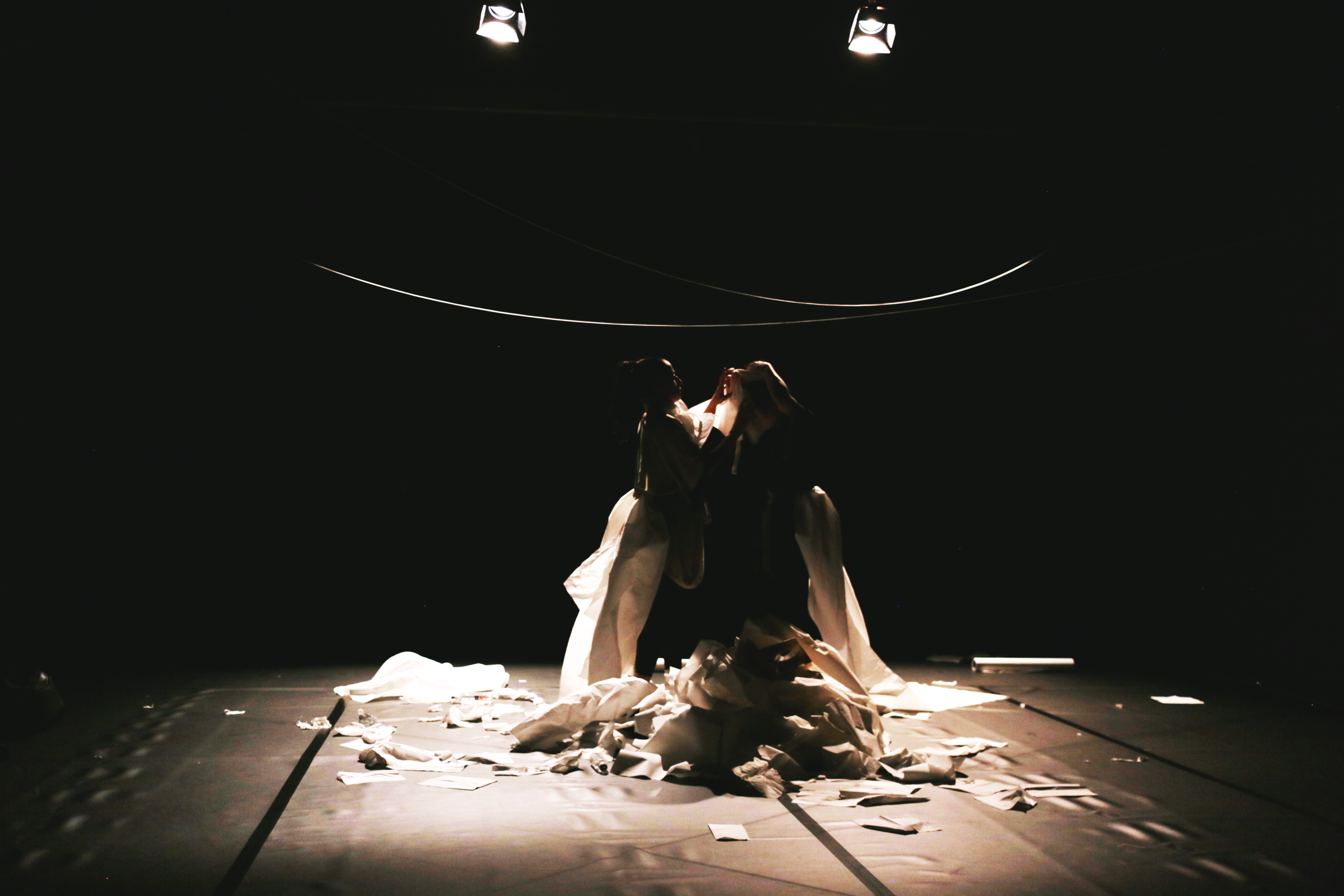
RAFINA
Directed by : Irina Gâdiuță
With : Irina Artenii, Benő Kinga, Carmen Lopăzan, Cătălina Oance
Text : Bogdan Georgescu
Scenography : Andreea Grigore
Music : M. Balabaș, Teo Retegan,
Scenic move : Carmen Coțofană
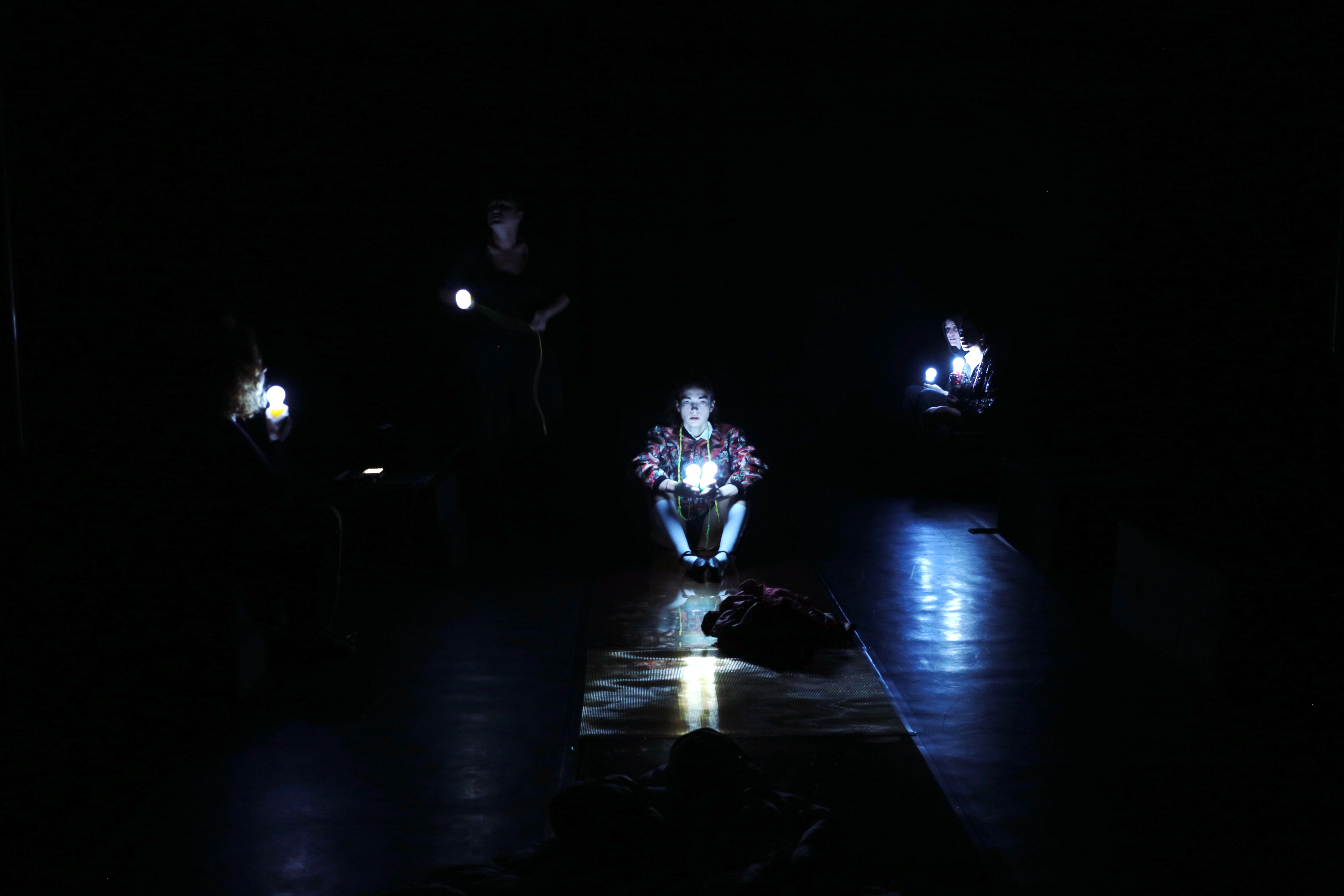
A premiere for the Political Theatre Season, RAFINA talks about the emotional landscape of the family and close ones of a non-neurotypical child. Irina Gadiuta chooses to build around the absence of this central character, the “special needs” child, who, commendably, is not represented – either for the right of self-representation either for not risking a thick, caricatured representation.
The nucleus around which the play is built upon is a scenographic one, a diaphane tissue of sounds and lights. Everything is dipped in pitch black – it feels even more opaque than with other shows – and just here and there can we find islands of light (of hope? of vision for the future?), while the flat, deep silence is sometimes suddenly broken with loud, weird, repetitive sounds.
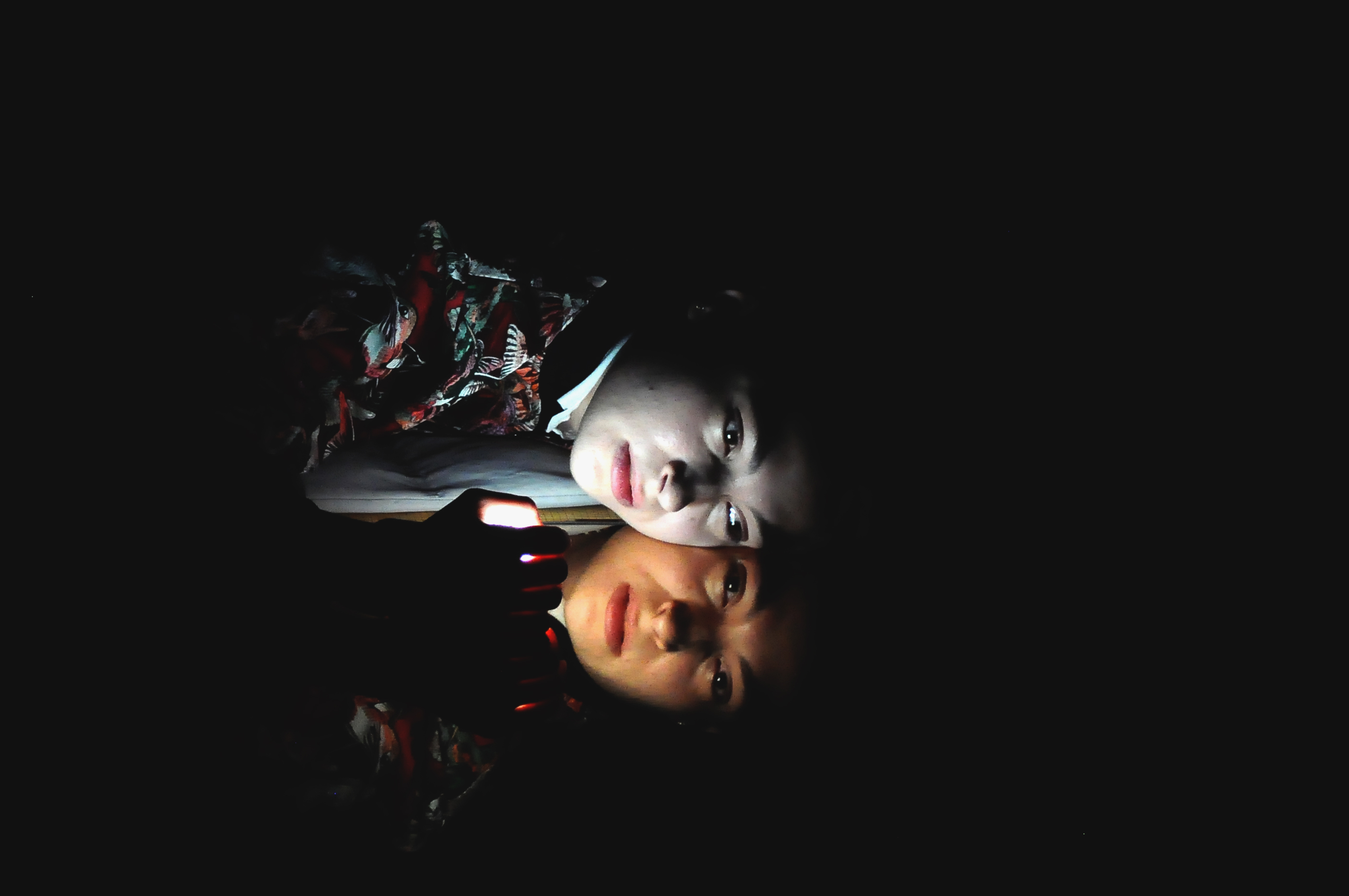
Thus, RAFINA investigates, in a poetic framework, the idea of neuronormativity, on which the belief that neurodivergence / neurodiversity is away from the norm, an anomaly, and upon which a whole complex set of socio-cultural practices are built – the diagnosis, marginalisation, institutionalisation of “nonconform” minds. Neurodiversity, as defined by Nick Walker is understanding “the neurologic variation as a natural form of human diversity, subscribed to the same societal dynamics as other forms of diversity”, as gender, ethnicity or sexuality. RAFINA portrays, in 7 acts, socio-affective landscapes where shame, suspicion and mistrust insidiously occur, where stigma, oppression, isolation are consolidated and personal histories intersect recent ones.
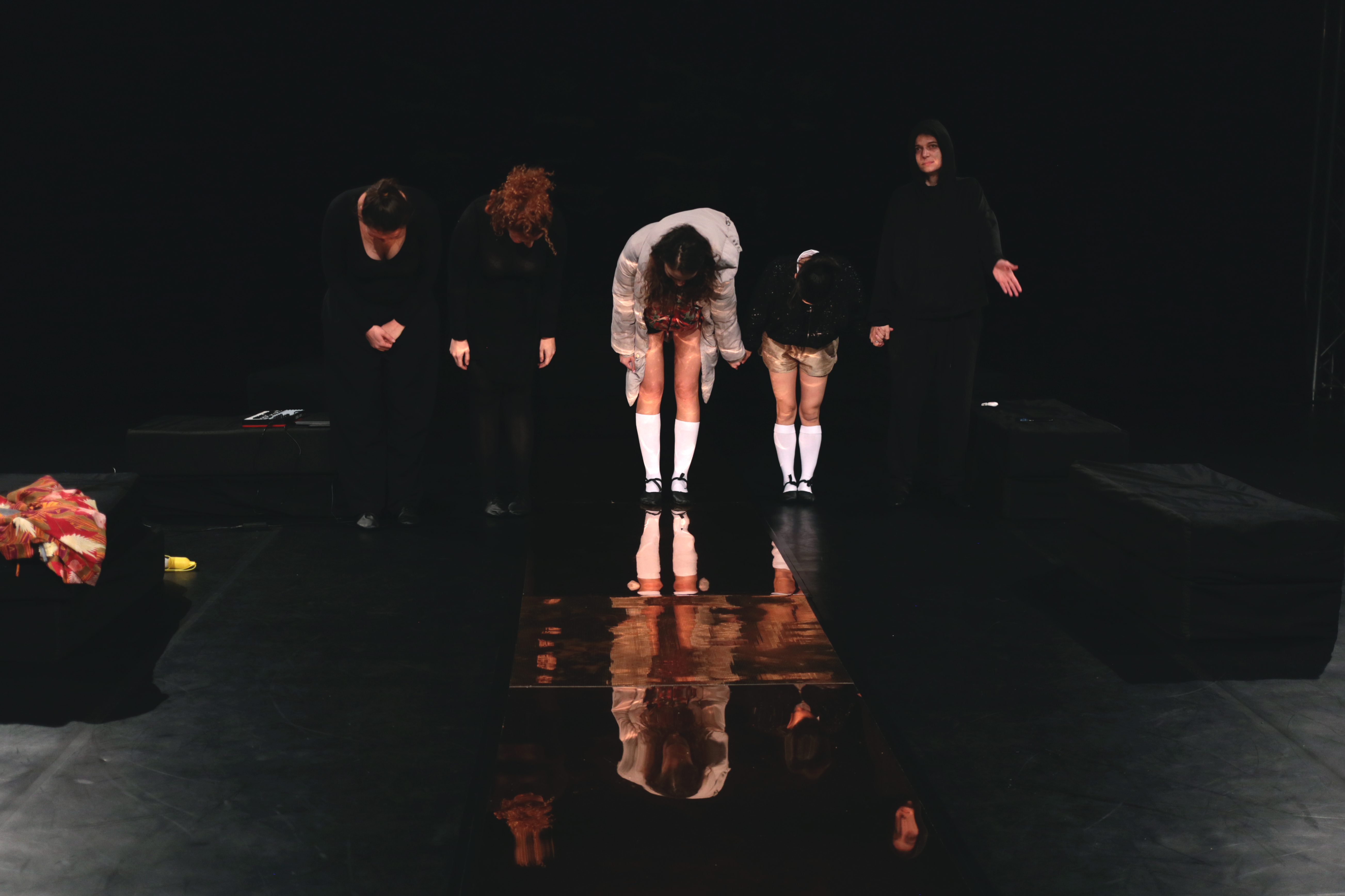
The plays in the Political Theatre Season can be regarded as complex, funny, endearing or dramatic exercises of empathy. Empathy with the different one, because we can never totally separate ourselves from the community, and we can only be in relation to the other.
Follow the Facebook page to keep up to date with offline & online plays. A big bravo to the video production team as well, who managed to adapt this otherwise offline content for the current context and whose work is often invisible.
—
© Photography Raluca Țurcanașu, commissioned by Stagiunea de Teatru Politic.
// article initially written for Revista 22, in Romanian, here //


